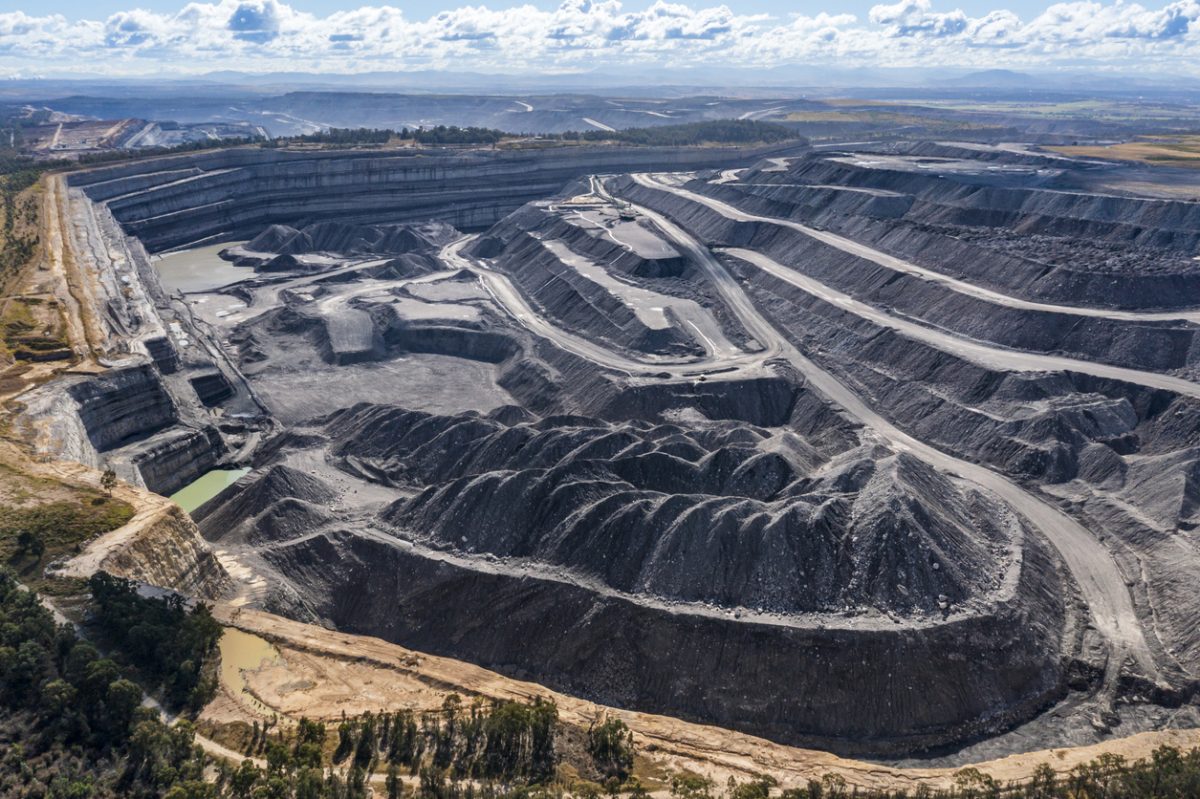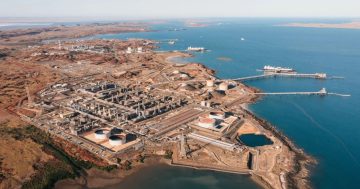
Global Analytics says Australia’s cumulative fossil CO2 emissions from Australia’s fossil fuel exports will increase by 50 per cent over the next decade to 2035. Photo: Mikulas1.
As the High Court refuses an appeal for the Living Wonders cases, Climate Analytics has released findings that Australia’s global carbon footprint far exceeds its economic size and population.
Earlier this month, the High Court turned down a special leave application from the Environment Council of Central Queensland (ECoCeQ) to appeal the Federal Court’s dismissal of the Living Wonders climate cases.
The Federal Court assessed whether Environment Minister Tanya Plibersek is required by law to scrutinise the climate harm of new coal and gas projects, finding she has no obligation to do so.
By ruling in favour of the Commonwealth, the court set a legal precedent for the approval of all future fossil fuel projects that come across the Minister’s desk.
Environmental Justice Australia senior specialist lawyer Retta Berryman acknowledged their most recent defeat, but said there was still hope.
“Public interest litigation like this is vital for a healthy democracy,” she said.
“Communities have the right to challenge the lawfulness of government decisions – especially when these decisions have such far-ranging impacts as fossil fuel approvals in an era of rapidly accelerating climate change.
“This loss is a setback, but as Federal Court Chief Justice Mortimer noted in her decision on court costs, ‘… the environment cannot speak for itself; someone must speak for it’.”
Climate Analytics’ report found Australia is responsible for about 4.5 per cent of global fossil carbon dioxide (CO2) emissions, of which 80 per cent is due to fossil fuel exports.
Authors Hannah Grant and Bill Hare calculated the cumulative fossil CO2 emissions from Australia’s fossil fuel exports between 1961 and 2023 to be 30 billion tonnes. However, they claim under current government policies, this will increase by 50 per cent over the next decade to 2035.
“It is frequently argued, by politicians, industry leaders and some media, that Australia’s contribution to climate change is comparatively small, and its actions inconsequential relative to other big polluters,” the report read. “There are numerous issues with this argument.”
The report found Australia has one of the world’s highest per capita emissions for all greenhouse gases, double that of China and nine times bigger than India.
In 2021, this country only trailed Russia and the United States as the world’s third-largest fossil fuel exporter. However, due to the large proportion of emissions of intensive coal exported, Australia ranked second that year for total greenhouse gas footprint.
“While fossil fuel production also contributes substantially to Australia’s domestic territorial emissions, the vast majority of emissions from Australia’s fossil fuels occur outside of its borders when they are combusted and/or used overseas,” the report read.
“So, while state and federal governments, and the fossil fuel industry to an even greater extent, profit from those exported fossil fuels, very little of the emissions that occur from those fuels are attributed to Australia under the UNFCCC and Paris Agreement reporting frameworks.”
The report’s authors believe Australia’s “gas-fuelled future” plan is flimsy given the future energy market demands.
According to the latest IEA Net Zero roadmap, total global use of fossil gas will decline 18-22 per cent by 2030, 47-53 per cent by 2035 and 78-91 per cent by 2050 – below 2022 levels. It also points to how the large majority of gas used by Australia is within the oil and gas industry itself, leaving only 19 per cent for domestic consumption.
Yet another issue raised in the report is how all the major importers (Japan, China, South Korea and India) of Australian fossil fuels are signatories to the Paris Agreement.
Due to their own set 2030 emissions reduction and net-zero targets, the report argues that sustained imports of Australian fossil fuels would not help them meet these commitments.
“The emissions that would arise from the Australian Government’s projected fossil fuel exports, in terms of both domestic production and end-use emissions, are clearly not falling consistent with a 1.5C compatible trajectory,” the report read.
“Australia has a responsibility not just to its own consumers of energy, but to the world.”











